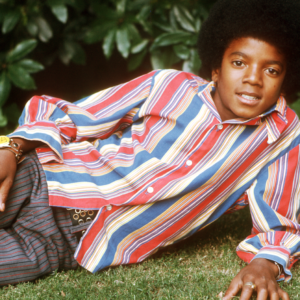
Norman Lear: A Creative Force in Hollywood
For many in Hollywood, from movie stars and directors to screenwriters and network executives, Norman Lear was a creative force, an inspiration, and a dear friend. With revolutionary programs like All in the Family, Maude, The Jeffersons, and Good Times, he brought contemporary realities into America’s living room and reinvented the medium of television.
Throughout his life, Lear strove to represent the truth of contemporary culture. This extended to the exceptional collection of art he built alongside his wife, Lyn Davis Lear. This May, their collection will be offered at Christie’s in New York as part of the 20th and 21st Century marquee week. Ahead of the sales, some of Lear’s biggest fans — who were also friends, colleagues, and mentees — look back on his contributions to American entertainment and the many ways his legacy endures.
Billy Crystal, Actor, Writer, Director, and Comedian
“I met Norman for the first time in 1975 at the Comedy Store in Los Angeles. It was early in my standup career, and this was my first trip to Los Angeles. I was living on Long Island, substitute teaching during the day and trying to be a comedian at night. I did a set, and it went very well. Afterwards, I was outside when Mr. Lear came out along with Carl Reiner to say hello. I was overwhelmed. We talked for a few minutes, they both said some lovely things, and I didn’t need a plane to fly home.
“A few days later, as I was feeding my 2-year-old daughter, the phone rang. I answered, and a woman asked if it was me, and said, ‘Hold on for Norman Lear.’ ‘Hello, this is Norman Lear, we met at the Comedy Store,’ he said, as if I wouldn’t know him. ‘There’s a part on All in the Family coming up next week. You’d play Mike’s best friend, and I think you’d be terrific with Rob [Reiner]. Can you get out here?’ He tracked me down and called me at home! There were tons of actors who could have played that part in LA, but he had a feeling about me. It still makes me so emotional.”
Lear’s Lasting Legacy
Norman Lear’s impact on television and culture is immeasurable. Through his groundbreaking shows, he addressed social issues with humor and honesty, paving the way for future storytellers. His legacy endures not only through his work but also through the countless lives he touched and inspired.

Norman Lear’s Influence and Legacy
At the first rehearsal, as I was meeting Rob Reiner, Sally Struthers, and the rest of the cast for that episode, Norman stressed how inclusive the process is: if you have any ideas, don’t hesitate. At that moment, I knew firsthand what an amazing producer he was, how he loved the input of others to help make the end product as good as it could be. I was a total newcomer, yet he, Rob, and the writers were open to suggestions.
Lear’s shows weren’t merely hilarious. Never silly, never pandering, they were honest and pointed, and they were accepted because they were always clothed in the truth. He took on subjects that were real and never backed off.
I think his touch is still influencing the way shows are developed today. There’s almost a silent, “What would Norman do?”
What I’ll remember most though is his warmth, humor, intelligence, and integrity. For all his genius and for all of his epic contributions to American culture, he always felt like a kind, funny, charming uncle to me.
Tracee Ellis Ross, Actress and Producer
The first time I met Norman was during the taping of the pilot of black-ish. He had heard about the show, and he was unbelievably supportive in a way that he did not have to be, lending his voice and his experience and telling me to basically be myself.
Norman influenced me as an artist probably more than anyone else in television because, to me, his message was: Be yourself and tell your story. You can’t be anyone else, but you can tell your story through the lenses of other people, and I think that’s what I’ve learned as a storyteller. I can’t tell a woman’s story, but I can tell my story through the women that have helped raise me and that I’ve helped raise. I can tell my story through the women that I’ve worked with. I can tell my story through the white guys that I know and how I see them reflected in my eyes. I think that’s the biggest part of who Norman was and that I really try to continue to do as an artist.
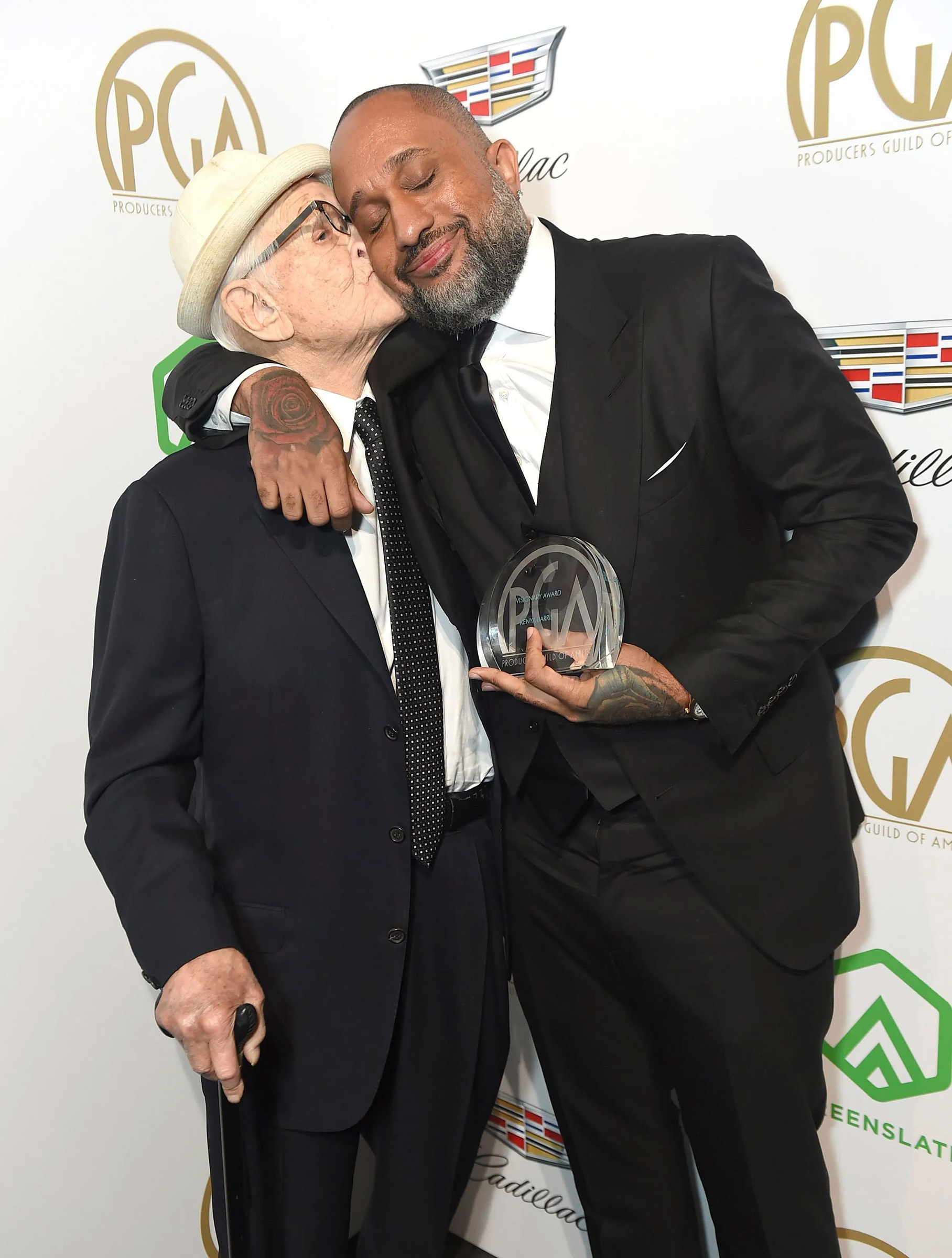
The Influence of Norman Lear
Norman Lear’s revolutionary television shows not only entertained audiences but also profoundly influenced many, particularly in how they viewed and represented their own lives.
The Jeffersons and Representation
One of Lear’s shows that resonated deeply was The Jeffersons. It was unique in its portrayal of a Black man who confidently challenged societal norms. This character, George Jefferson, struck a chord with many viewers, including those who saw a reflection of their own aspirations and defiance in him. For one individual, it was a portrayal that even their father admired, inspiring them to embody some of Jefferson’s traits.
Lear’s shows were celebrated for their truthfulness. They addressed real-world issues and emotions—whether ugly, good, happy, or sad. By using television as a mirror to society, Lear broadcasted the private conversations happening at dinner tables, in bedrooms, and at workplaces to the world.
Shonda Rhimes on Norman Lear’s Humanity
Shonda Rhimes, the acclaimed screenwriter and producer, shares personal memories of Norman Lear that highlight his kindness and generosity. She recalls being nervous about interviewing him at a retreat. Sensing her nerves, Lear comforted her, turning the experience into an enjoyable one. Rhimes describes Lear as brilliant, hilarious, and forever young, emphasizing his continued relevance in the entertainment industry.
Lear’s shows, from Maude to Good Times to The Jeffersons, were successful because they reflected society back to itself. He tackled topics rarely seen on television, showcasing the diverse facets of humanity. Whether characters were great or flawed, Lear’s storytelling invited audiences to look deeper into people’s lives and experiences.
Rhimes notes that Lear’s best advice was to treat each day as a workday, always engaging in something meaningful. This approach, according to Lear, was key to staying young and engaged.
Ted Sarandos on Norman Lear’s Legacy
Ted Sarandos, Co-CEO of Netflix, shares a humorous yet profound insight into Lear’s legacy. As a child, Sarandos saw the phrase “Created by Norman Lear” so often that he thought it was as ubiquitous as “In God We Trust,” not realizing it referred to an actual person creating impactful content.
Sarandos recounts how his passion for binge-watching television was inspired by Lear’s Mary Hartman, Mary Hartman. In 1976, at the age of 12, Sarandos would stay up late on Sunday nights to watch all five episodes of the show that aired during the week. This early experience with marathon viewing foreshadowed the binge-watching culture that Sarandos would help popularize through Netflix.
Norman Lear’s Enduring Impact
Norman Lear’s contributions to television and culture are timeless. His shows not only provided entertainment but also fostered important conversations about society, identity, and humanity. Through his work, Lear has left an indelible mark on the entertainment industry and on those who continue to be inspired by his vision and dedication.
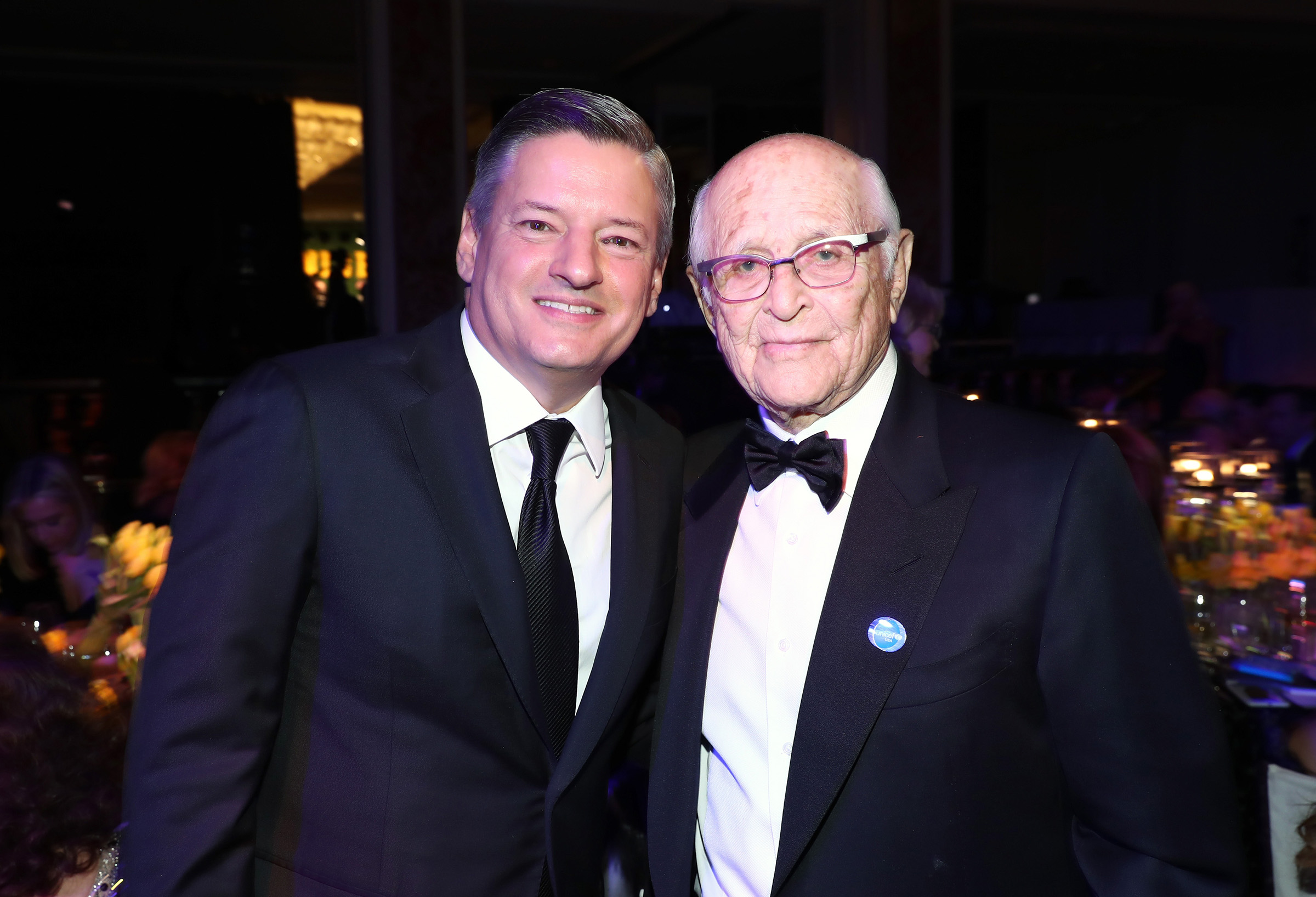
The Legacy of Norman Lear
Norman Lear cared deeply about two things: making people laugh and making them think, in that order. His shows often tackled controversial storylines, pushing the envelope and challenging societal norms.
“I was constantly learning at the feet of Norman Lear,” recalls one of his mentees. “He encouraged me to be bold, make hard decisions, and understand the importance of ideas in culture and society. A big part of that is having courage and surrounding yourself with great storytellers.”
Reginald Hudlin on Norman Lear’s Revolutionary Impact
Reginald Hudlin, a writer, director, producer, and former president of entertainment for BET, reflects on Lear’s revolutionary contributions to television.
“Norman was a revolutionary, and he was a revolutionary over and over again, which is really hard to do. It’s hard enough to have a hit anything: a hit movie, hit record, hit TV show. Not only did he have multiple hits, he changed the medium multiple times,” Hudlin says.
Lear’s ability to say profound things about American society while maintaining high entertainment value set him apart. “It’s very easy to preach, and usually when you do that, you’re speaking to the people who already agree with you. He figured out how to never compromise on entertainment value. By doing so, he reached the people who needed to hear the message most.”
Lear’s shows were honest about societal realities. Unlike much of television that portrayed aspirational lifestyles as normal, Lear focused on working-class people, their jobs, and their lives. He also portrayed race in a nuanced way, showcasing different facets of Black life through diverse characters in shows like Good Times and The Jeffersons. These characters and their stories resonated with audiences when they first aired and continue to do so today.
Norman Lear’s Enduring Influence
Norman Lear’s influence on television and culture is profound and enduring. His ability to combine humor with thoughtful commentary on social issues has left an indelible mark on the industry. His shows continue to inspire and challenge new generations of creators and viewers, encouraging them to be bold, honest, and unafraid to tackle difficult subjects. Through his work, Lear has proven that entertainment can be both engaging and meaningful, reaching and impacting audiences in profound ways.
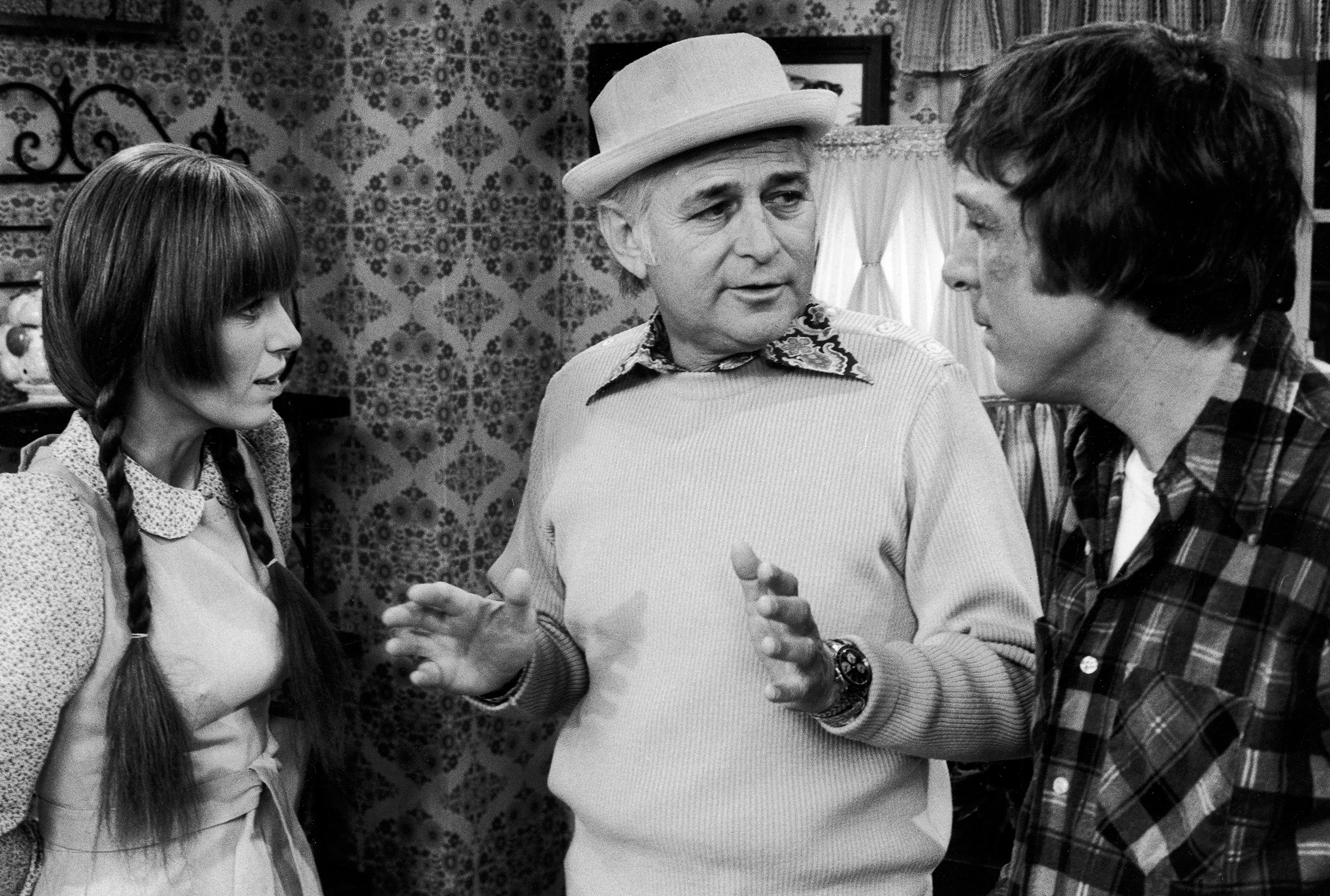
Norman Lear’s Influence on Television and Beyond
Phil Rosenthal, creator of Everybody Loves Raymond, acknowledges Norman Lear’s profound impact on television and society. Lear’s legacy extends beyond entertainment into activism, where he used his financial success and celebrity status to remain politically engaged throughout his life.
The Impact of All in the Family and Beyond
Rosenthal often divides television history into two eras: Before Norman (BN) and After Norman (AN). Lear’s influence was monumental, starting with All in the Family and continuing through shows like Maude and Good Times. These shows were more than entertainment; they engaged with and commented on the social issues of their time with a clear point of view rooted in love, inclusiveness,
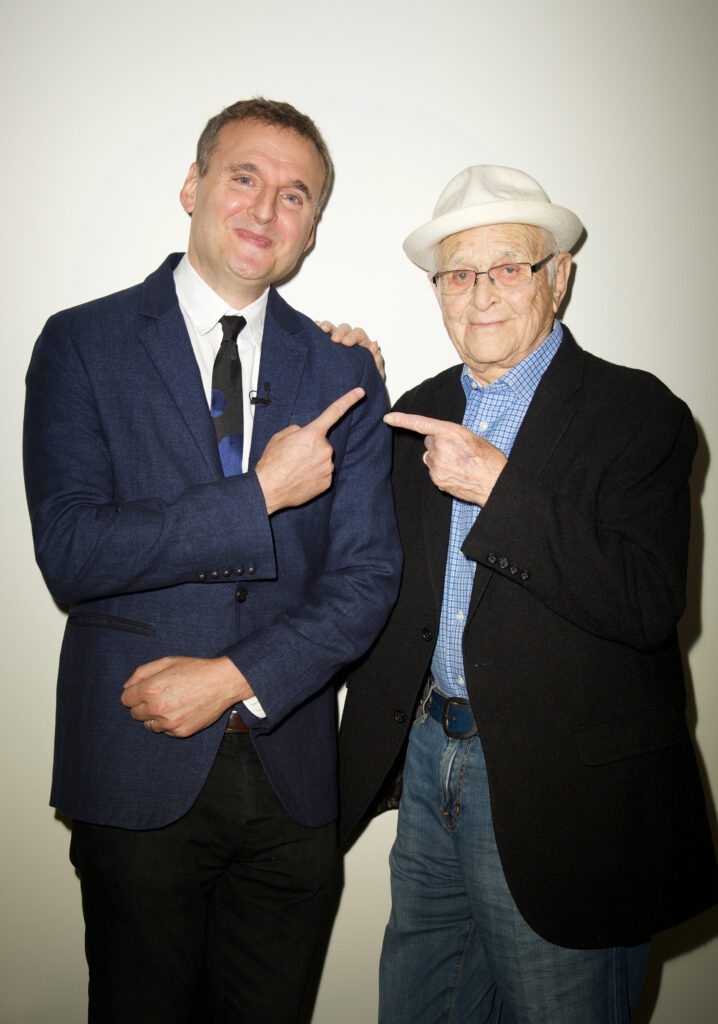
Phil Rosenthal’s Encounter with Norman Lear
During the first season of Everybody Loves Raymond, Phil Rosenthal received a call in the writer’s room that would change his life. On the other end was Norman Lear, Rosenthal’s idol and one of the most influential figures in television. Lear expressed mutual admiration and invited Rosenthal to lunch the next day at Pinot on Ventura.
“I get there and Norman is sitting there with Carl Reiner, and I drop dead,” Rosenthal recalls. To him, they felt like family from the moment they met. This familial connection lasted over 25 years, with Lear, his wife Lyn, and their family becoming an integral part of Rosenthal’s life.
Norman Lear and Art Collection
Rosenthal also admired Norman and Lyn Lear for their incredible art collection. Their homes were adorned with galleries of modern art, reflecting a youthful, joyful, and life-affirming spirit that characterized the Lears themselves. The collection featured marvelous pieces that Rosenthal found awe-inspiring and a testament to the couple’s vibrant personalities.
Norman Lear’s impact on Rosenthal extended beyond television; it was a personal connection that enriched Rosenthal’s life and career, illustrating Lear’s enduring influence as both a cultural icon and a cherished friend.








